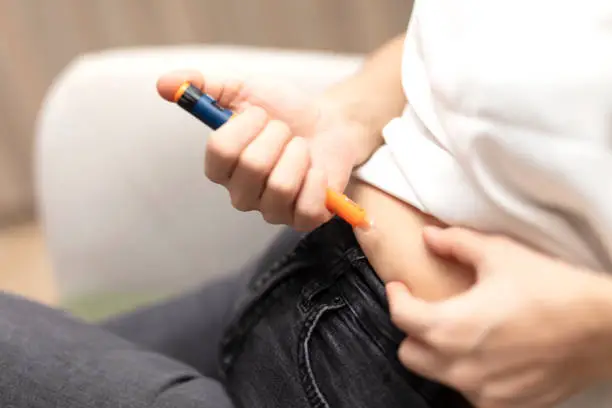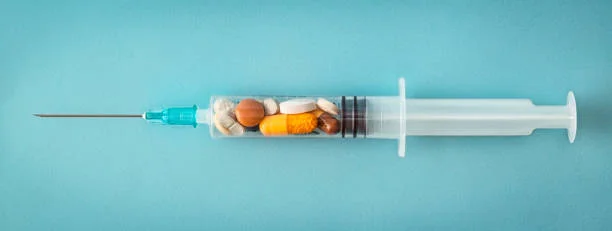May-17, 2023
Table of Contents
What Is Erectile Dysfunction?
Symptoms of Erectile Dysfunction
Causes of Erectile Dysfunction
1. Physical Causes
2. Psychological Causes
Some diseases and conditions
Taking specific medications
Prevention of Erectile Dysfunction
1. Maintain a Healthy Lifestyle
2. Manage Underlying Medical Conditions
3. Reduce Stress and Anxiety
4. Avoid Excessive Alcohol and Drug Use
5. Treat Erectile Dysfunction Early
Conclusion
What Is Erectile Dysfunction?
Erectile dysfunction (ED), commonly referred to as impotence, is a disorder defined by a failure to achieve or maintain a hard adequate erection for sexual intercourse. It is a common problem that affects millions of men worldwide, and its prevalence increases with age.
Symptoms of Erectile Dysfunction
Failure to achieve or maintain a firm adequate erection for sexual intercourse is the major symptom of erectile dysfunction. This can express itself in a variety of ways, including:
- Difficulty getting an erection
- Inability to maintain an erection
- Reduced sexual desire
- Premature ejaculation
- Delayed ejaculation
These symptoms of ED can have a significant impact on a man's quality of life and may lead to feelings of frustration, anxiety, and depression.

Causes of Erectile Dysfunction
Physical and psychological factors frequently contribute to erectile dysfunction. Among the most prevalent causes of ED are:
1. Physical Causes
- Cardiovascular disease: ED can be a sign of underlying heart disease, as the same processes that cause cardiovascular disease can also damage blood vessels and restrict blood flow to the penis.
- Diabetes: High blood sugar levels can cause damage to blood vessels and nerves, leading to ED.
- High blood pressure: Hypertension can damage blood vessels, making it difficult for blood to flow to the penis.
- Obesity: Being overweight or obese can increase the risk of ED by causing hormonal imbalances and reducing testosterone levels.
- Low testosterone: Testosterone is an important hormone for sexual function, and low levels can lead to ED.
- Peyronie's disease: This condition causes scar tissue to form in the penis, which can cause curvature, pain, and difficulty getting or maintaining an erection.
- Certain medications: Some medications can cause ED as a side effect, including antidepressants, antihistamines, and blood pressure medications.
- Alcohol and drug use: Excessive alcohol consumption and recreational drug use can lead to ED by reducing testosterone levels, impairing nerve function, and damaging blood vessels.
- Sleep disorders: Sleep apnea, a disorder in which breathing is interrupted during sleep, has been linked to ED.
2. Psychological Causes
- Anxiety: Performance anxiety can make it difficult to achieve or maintain an erection.
- Depression: Depression can reduce sexual desire and make it difficult to get or maintain an erection.
- Relationship problems: Relationship issues can cause stress and anxiety, which can contribute to ED.
- Stress: Stress can interfere with the release of hormones needed for sexual arousal and can lead to physical changes that make it difficult to achieve or maintain an erection.
Many variables influencing your vascular, neurological, and endocrine systems could lead to or contribute to ED.
Although you are more prone to get ED as you become older, ED is not caused by aging. Any age can be treated for ED.
Some diseases and conditions
ED can also be caused by the following disorders and conditions:
- Type 2 diabetes.
- Heart and blood vascular disease.
- Atherosclerosis.
- High blood pressure.
- Chronic renal disease.
- Multiple sclerosis.
- Peyronie’s disease.
- Damage from therapies for prostate cancer, including radiation therapy and prostate surgery.
- Penis, spinal cord, prostate, bladder, or pelvic injuries.
- Surgery for bladder cancer.
Taking specific medications
ED is a side effect of several medications, such as:
- Blood pressure medicines.
- Antiandrogens: medications for prostate cancer treatment.
- Antidepressants.
- Tranquilizers, or prescribed sedatives: medicines that keep you calm or sleepy.
- Appetite suppressants, or medications that make you feel less hungry.
- Ulcer medications.
Prevention of Erectile Dysfunction
There are several steps men can take to reduce their risk of developing erectile dysfunction:
1. Maintain a Healthy Lifestyle
Maintaining a healthy lifestyle can reduce the risk of developing many of the physical causes and prevention for ED. This includes:
- Eating a healthy diet: A diet rich in fruits, vegetables, whole grains, and lean protein can help reduce the risk of cardiovascular disease, diabetes, and obesity.
- Exercising regularly: Exercise can help improve cardiovascular health, reduce stress, and improve mood.
- Quitting smoking: Smoking can damage blood vessels and reduce blood flow to the penis, increasing the risk of ED.
2. Manage Underlying Medical Conditions
Managing underlying medical conditions can reduce the risk of developing ED. This includes:
- Controlling blood sugar levels: For men with diabetes, keeping blood sugar levels under control can reduce the risk of ED.
- Managing hypertension: For men with high blood pressure, managing blood pressure through lifestyle changes and medication can reduce the risk of ED.
- Treating sleep disorders: For men with sleep apnea, treating the disorder can reduce the risk of ED.
3. Reduce Stress and Anxiety
Reducing stress and anxiety can also help reduce the risk of ED. This can be accomplished using a number of approaches, they include:
- Meditation and other methods of relaxation can assist to relieve tension and anxiety.
- Counseling: Seeing a therapist or counselor can help address underlying psychological factors that may contribute to ED.
- Communication: Open communication with sexual partners can help reduce anxiety and improve sexual function.
4. Avoid Excessive Alcohol and Drug Use
Excessive alcohol and drug use can increase the risk of ED. Limiting alcohol consumption and avoiding recreational drug use can help reduce the risk of ED.
5. Treat Erectile Dysfunction Early
If you experience symptoms of ED, it is important to seek treatment early. Treatment options for ED include:
- Medications: Several drugs, including sildenafil (Viagra), tadalafil (Cialis), and vardenafil (Levitra), are available to treat ED.
- Vacuum pumps may be employed to produce an erection by sucking blood into the penis.
- Penile injections: Medications can be injected directly into the penis to create an erection.
- Surgery: In some cases, surgery may be necessary to treat underlying physical causes of ED, such as Peyronie's disease or a blockage in the blood vessels.
Conclusion
Erectile dysfunction is a frequent issue that can negatively impair a man's quality of life. It is often caused by a combination of physical and psychological factors, and there are several steps men can take to reduce their risk of developing ED. Maintaining a healthy lifestyle, managing underlying medical conditions, reducing stress and anxiety, avoiding excessive alcohol and drug use, and seeking early treatment for ED can all help and serve as a reduction for ED.









